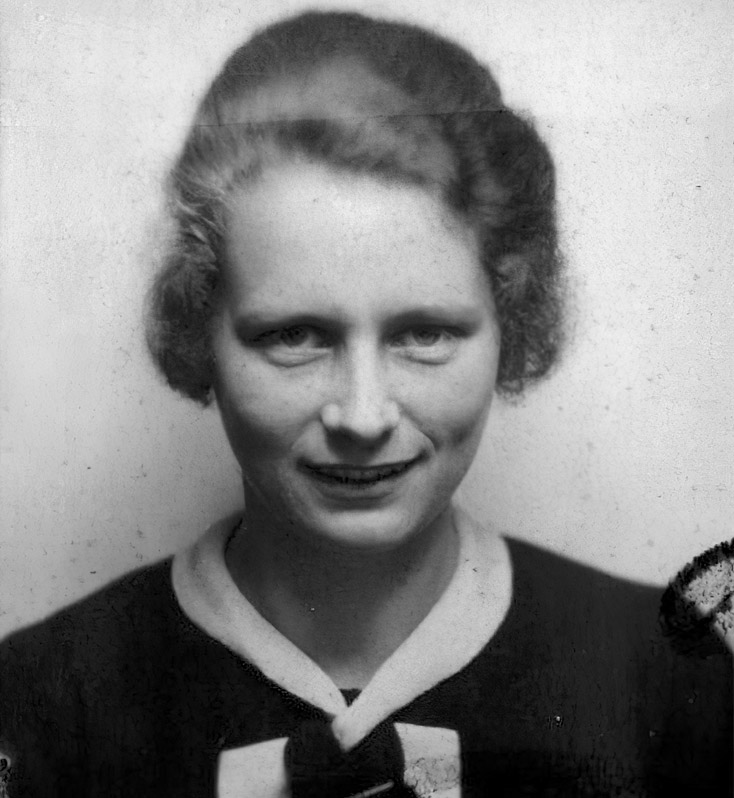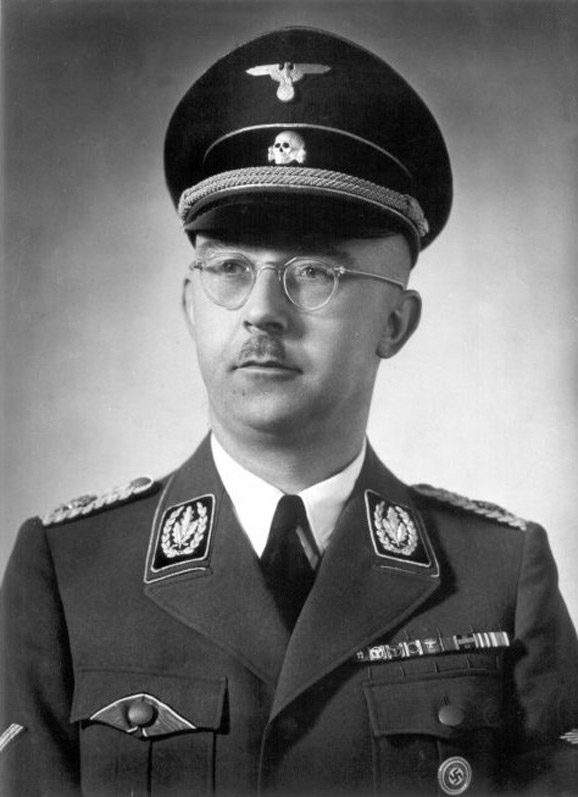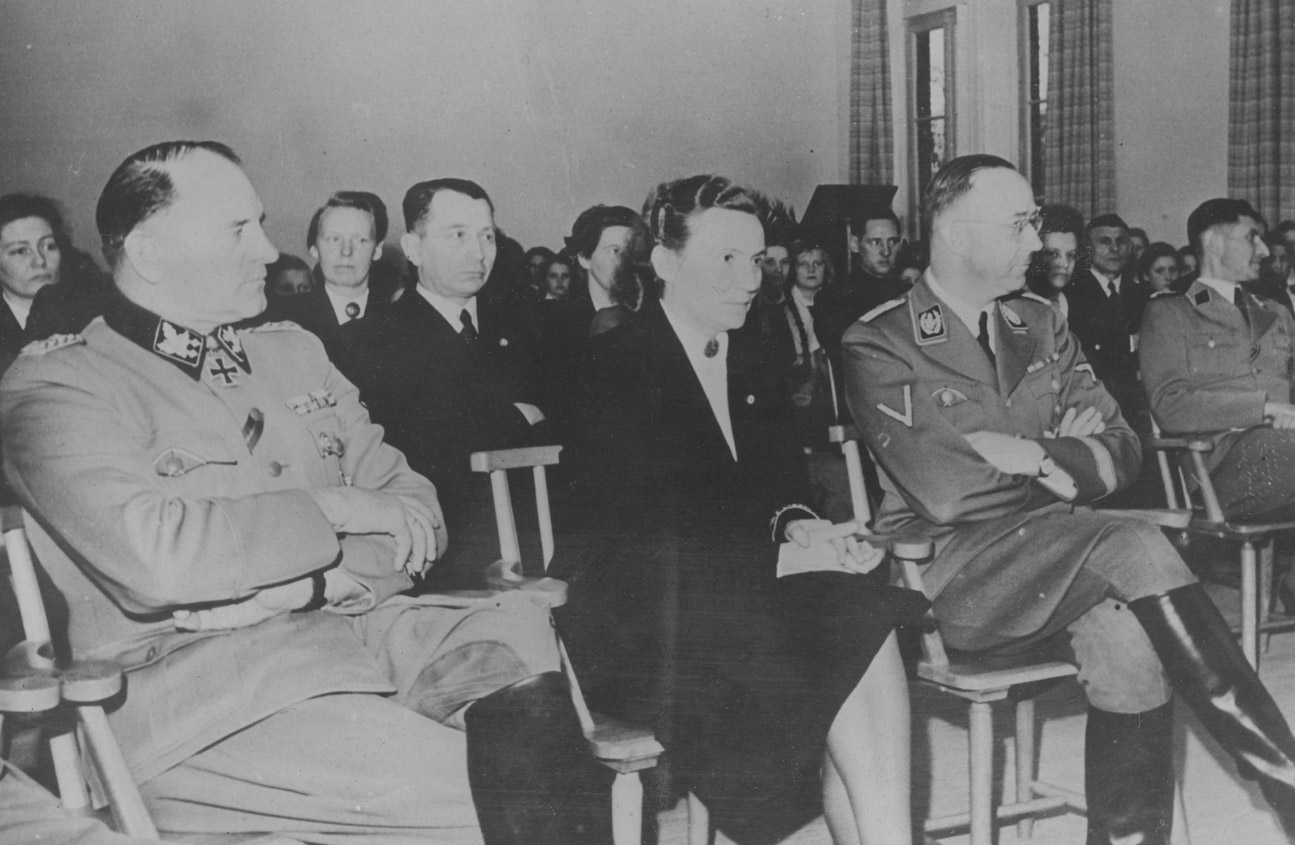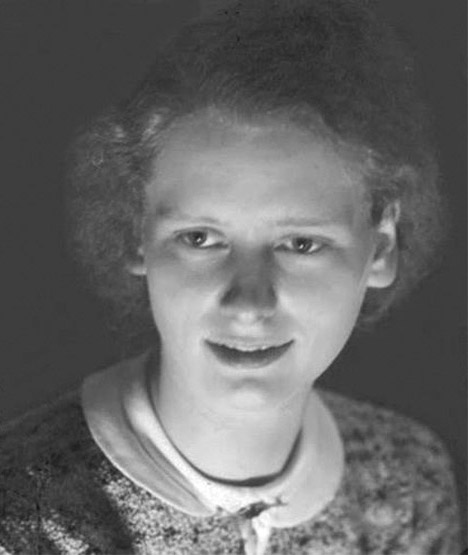
Interview with Hedwig (Potthast) Staeck, personal secretary to Heinrich Himmler, Baden, 1988.


Interview with Hedwig (Potthast) Staeck, personal secretary to Heinrich Himmler, Baden, 1988.

Thank you for allowing us to visit with you, as discussed I would like to ask you what it was like to live during the Third Reich?
Hedwig: Yes, you are told I am sure what you will and will not ask me. I refuse to talk to anyone about the past; it is the past and should stay there. I am indulging you, as you know, because friends have asked that I speak with you, so I shall. For me life in the Reich under National Socialism was very good, except when the war came.
I remember being so happy and carefree, I had completed college for finance and was given a very good job that then moved me to work for the police. Life was good then, prices were good, and pay was good. I was in Berlin which was one of Europe’s finest cities.
Berlin used to be the capital until it was destroyed and sectioned. There were places you could go to enjoy life and nature. There was a beach, a zoo, gardens, and food galore. A young lady could easily get lost in the city; there was always somewhere to go or something to do.
My apartment was close to everything, I could shop, walk, see a movie, or go to a spa. You see, it was not like today, things were very clean, safe, and orderly. From what I saw and knew of the Weimar era, it was the complete opposite. Criminals were removed, there was pride that was gained back, a pride in one's self and our nation.
The National Socialist state created an air of love, honor, creativity, and curiosity. I always heard in Weimar women were told to not be mothers as it was beneath them. In National Socialist Germany women and mothers were elevated to a high status. Many of my friends went on to have lots of children.
Can I ask how you came to be on the staff of Reichsführer-SS Himmler?
Hedwig: Yes, I was in the state police, typing out complaints against suspects and official investigations. I was very efficient and precise so I received very good reviews of my work. I caught the attention of teachers during business school and they put in good words for me.
I suppose this reached the ear of the Reichsführer-SS, and he later posted a position for a personal secretary, with very good pay. I was asked if this was something for me and I said yes, I was ambitious. I was interviewed and was offered the job. From there my responsibilities grew with experience.
Can I ask what you thought when first meeting the Reichsführer-SS Himmler?
Hedwig: Oh, you are sneaky dear. I will tell you he was very professional and correct. He started out very strict, and watchful, making sure things were done correctly. After seeing my work he relaxed a bit. He was the chief of police, as well as head of the SS. The SS was his main passion, but he was also a law man. He had a very good sense of order and right from wrong. I will say some things about him.
He would run through issues in his head, openly speaking aloud and seeking recourse. It was always if we allow this once, what will the future say about it. You could say he was obsessed with his work, and always wanted things organized in just the right way. As we got used to each other's ways, he would often ask my opinion.
He was a very good boss, always providing lunch for the staff or trips so we could relax after a hard weeks work. There was nothing bad to say about him or the job. I remember one of the girls on the staff fell and broke her ankle, he had his driver go pick her up from the hospital and then when she could wear a cast, he drove her to work for a few weeks.
She loved it, as she looked like a high level person, and would get salutes from those who wondered who this woman was.
He also knew many of his SS officers by name and would always send a personal greeting for important dates. I would type them, stamp them and send them once he approved them. He had us always doing some sort of exercise outside like stretching, races, or throwing balls. Fitness was very big during this time.

Hedwig: Yes dear, I met them all. I was his personal secretary, so where he went I went. I saw every SS general personally, every gauleiter and party leader. I met many of the wives of these men, and formed friendships that have lasted to this day. I am told you met Lina [Heydrich] before she died.
We stayed like a very close clique right after the war to protect ourselves and our children. The occupation was not kind to anyone who worked in the government, unless you said bad things against the Führer, but we refused to bow.
Can I ask what Reichsführer-SS Himmler's thoughts on religion were? I have read he hated God, and wanted to burn down all the churches.
Hedwig: So let me ask you then, why did the Allies knock down our churches, which had stood for hundreds of years? I saw receipts where the SS foundations helped remodel and restore ancient places of worship. I must say he was not burning down churches; he was actively interested in preserving their historical importance and culture for our people.
Now I will say he was no fan of the Church and I mean this in a way you might understand. He believed, as did Hitler, that the churches in Germany had become like old men’s bones, broken and misshaped. They were being used as tools to destroy our race and the very foundation of our nations.
Not all of them were, but most. This is why the German Christians church was created, to counter the modern notion of God being of all races and cultures. He always would tell me, “God may have created the races, but he made them distinct, separate, and gave each race a way to worship.”
He took a very keen interest in the history of man, and of the Europeans. He funded the Ahnenerbe which went exploring to find answers to the questions we ask about creation. There was nothing sinister in this and the Church even supported this. He was very deep into our Germanic past and the symbols that were left behind. Germany was filled with them, and he enjoyed paying homage to them.
Can I ask about the crimes the SS is said to have committed, and the camps, do you believe any of this?
Hedwig: I vowed never to talk of this to anyone, so I really have nothing to say about it. But let me tell you this, I was his secretary, I saw all correspondence. I read him reports from the many camps then in existence. I saw the details of reprisals in Poland and elsewhere against killers of German soldiers and civilians.
There was never anything that would make me think something sinister was happening. He even lamented to me he did not like what was happening to Jews in Russia; he said many had died from pogroms that could have been prevented. He felt these only encouraged Jews and their allies to rise against our ideals.
I heard him complain that some camp commanders were not following orders, and allowing mistreatment. I read a letter an inmate sent from Dachau, complaining other inmates bullied and stole from him. He was a Catholic who had been caught printing anti-National Socialist papers in Poland.
The Reichsführer-SS let him go under conditional arrest. These are not actions of someone attempting to do horrible things. I will speak no more of this with you, but know I hold no faith for what his detractors say he did. I knew the man, and he was good with a clean heart and conscience. Just because a person has told a story does not make it true. The proof they threw at us in the end, I believe was mostly made up or misused.

Hedwig: Yes, it was bad. I was with my children, living among other wives who were trying to protect their homes and families. The Allies were very vengeful; they allowed communists and Jews who had left Germany, to come back. Since they spoke German, they interrogated many people in bad ways, making them scared for their lives.
My Hans [her husband, who she married in Baden in 1955] could tell you. I was arrested and taken since I was the secretary of the Reichsführer-SS; they wanted to know what I knew. I told them what I knew and they did not believe me, threatening me with all sorts of punishments for lying.
They asked if I knew about the camps, of course I did. They wanted to hear me say I knew people were being killed in them. I would only say I knew Nordhausen, Buchenwald, and others had been bombed by them, killing many hundreds of prisoners. I was hit for that.
They showed me documents that had not been cleared properly through the channels so I knew they were made up. I saw wrong stamps and signatures. I was scared at what they might do to me, but friends had gotten messages to me to say tell the truth and not agree to their accusations, and all would be OK.
If you did not agree with their version of events, you had no future in Germany. Many were abused and tormented by these bullies who wanted statements to prove someone’s guilt. We felt alone and very worried about what would happen to us and our children. I was lucky to have friends aiding me and given protection once they stopped going after me. In the end I concentrated on raising my children and later met my husband.
If I may, what was Reichsführer-SS Himmler’s view on the war?
Hedwig: He hated it; he despised the loss of life and culture the war brought. I remember he was very disappointed in 1939, largely because war was not prevented with Britain. He had many contacts there who wanted an alliance with us in order to stop Bolshevism. He tried for peace until the very end.
What his enemies said about him are lies; he headed the removal of some people who were considered threats to Europe in the east. They were to stay there until the war was decided, and then be moved to Palestine. Even some of his closest comrades were forced to turn on him in the end in regards to this you know.
He had no hatred in him of anyone, and only wanted to protect our people from a hidden decay that had been eating at them for a long time. He had a vision for a very bright future that secured eternal existence.
He lamented to me how hard it was on him to see so many good men fall and to have to give a final greeting. He blamed the war on warmongers who wanted National Socialist Germany destroyed, and they had allies working from within.
The 20th of July [the pathetic attempt on Adolf Hitler's life] exposed some of them he said. They did not get the power they wanted so it was their way to bring down something they were jealous of.
He was critical of the generals as well; they disobeyed orders and impeded the Führer. Now I see they write their memoirs as if they were great commanders and it was the Führer and his SS that wrecked Germany. They are liars and braggarts who should have been fired in disgrace. Now they have Germans thinking the war was planned, carried out with hate and crimes, by a crazy lunatic.
